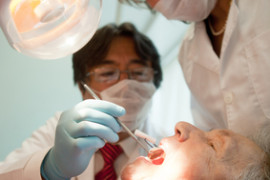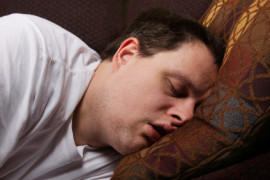A review of research surrounding the dental team’s role in the detection and management of obstructive sleep apnea was published in a January issue of Quintessence International.
The report, which examined peer review studies from 1934 to 2013, concluded:
The dentist’s role in the diagnosis of OSA in children and in diagnosis and treatment in the adult population with the help of oral appliances is vital. Diagnosis and treatment by the aware dentist can reduce major health risk outcomes.
Obstructive sleep apnea is becoming increasingly common, especially in Western societies where obesity rates are likewise rising. It has been well documented that sleep apnea contributes to increased risk for heart attack, stroke, diabetes, dementia, and some cancers.
Continuous positive airway pressure (CPAP), the most common treatment for sleep apnea, is highly effective when patients comply; however, oral appliances are becoming an increasingly accepted as an effective alternative for those patients with mild to moderate sleep apnea who are CPAP-intolerant.
Patients typically see their dentist and/or dental hygienist more often than they see their general practitioner, making the dental office an ideal place to screen for and treat this common problem.



